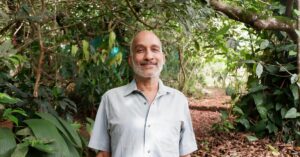Haryana Man Grows Mini Food Forest In 100 sq m Using Zero Chemicals!
“My mother, who was a gardener, inspired me to grow a mini forest using natural gardening methods like mulching, composting, soil-regeneration, seed-saving and companion planting."
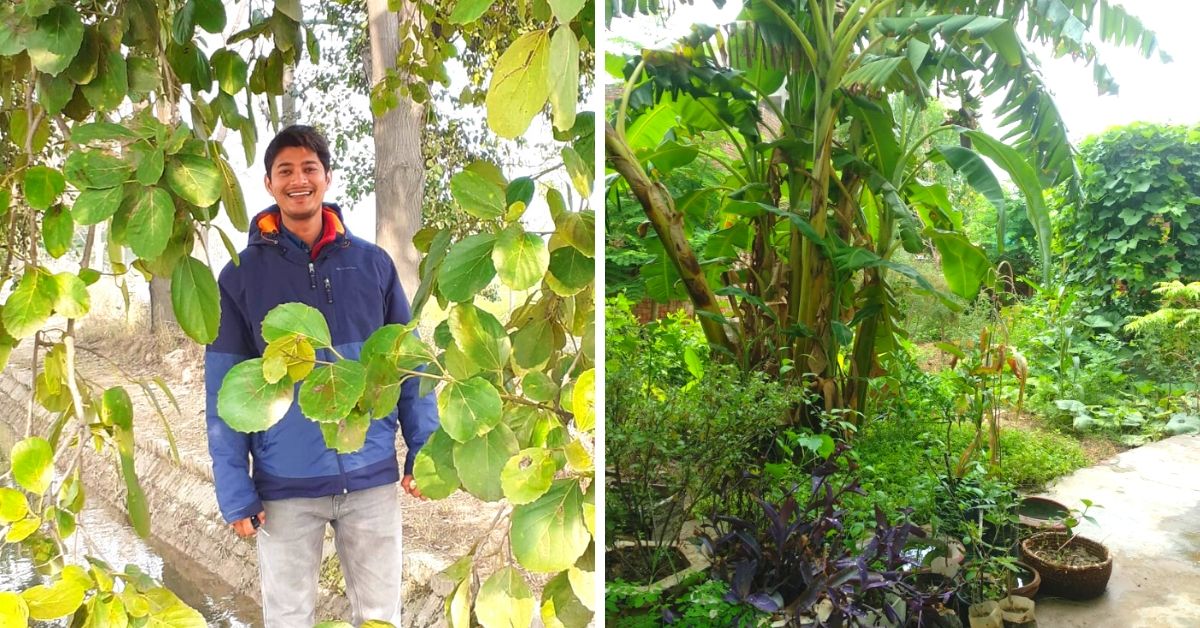
With The Positive Collective, The Better India’s COVID-19 coverage is available to regional language publications for free. Write to [email protected] for more details.
While growing up Vipesh Garg, a gardener by heart and Horticulture Development Officer by profession would often get into troubles for stealing plants from the neighbouring homes. Once a neighbour even handed him over to the police for stealing indoor plants from his house. Interestingly, 13 years later, the same neighbour attended a garden workshop organised by Vipesh in his hometown in Ratia in Fatehabad district of Haryana.
Vipesh’s childhood fascination for gardening took a concrete shape over the years so much so that he completed his graduation in Agriculture Science and did his Masters in Vegetable Breeding.
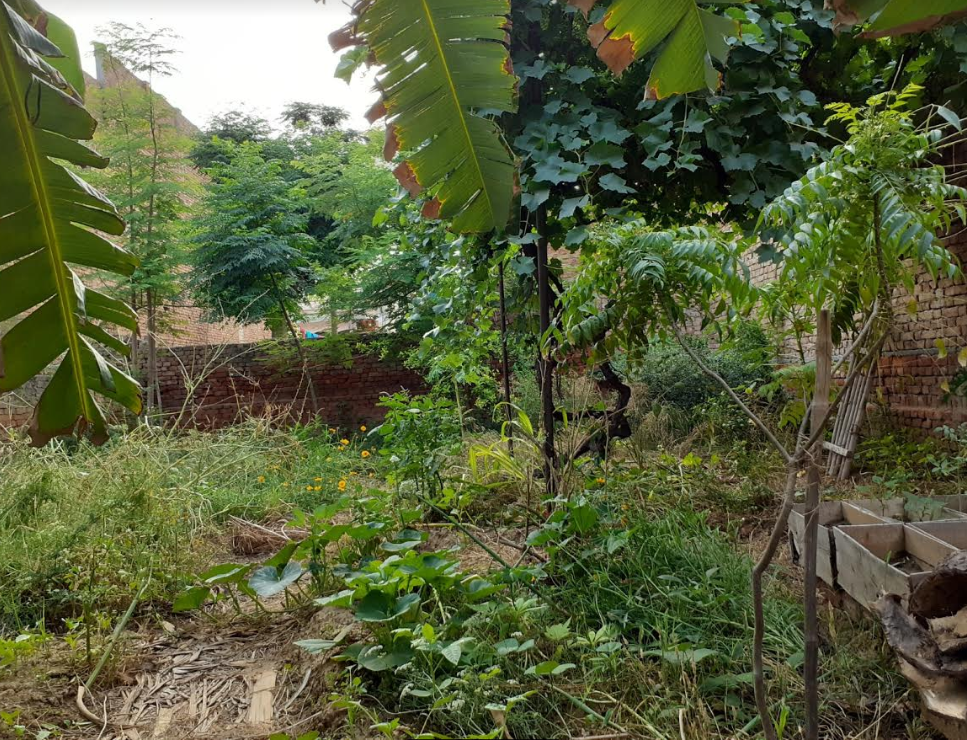
Since 2014, he has been working with the Punjab State Government in various capacities.
Click here to read how Vipesh is promoting gardening as an officer in schools of Punjab.
Along with making strides in his professional life, Vipesh nurtured his personal garden which has now grown into a mini food forest on 100 square metres in 2019. Here he grows over 100 edible and non-edible chemical-free plants including fruits, vegetables, flowers and medicinal plants.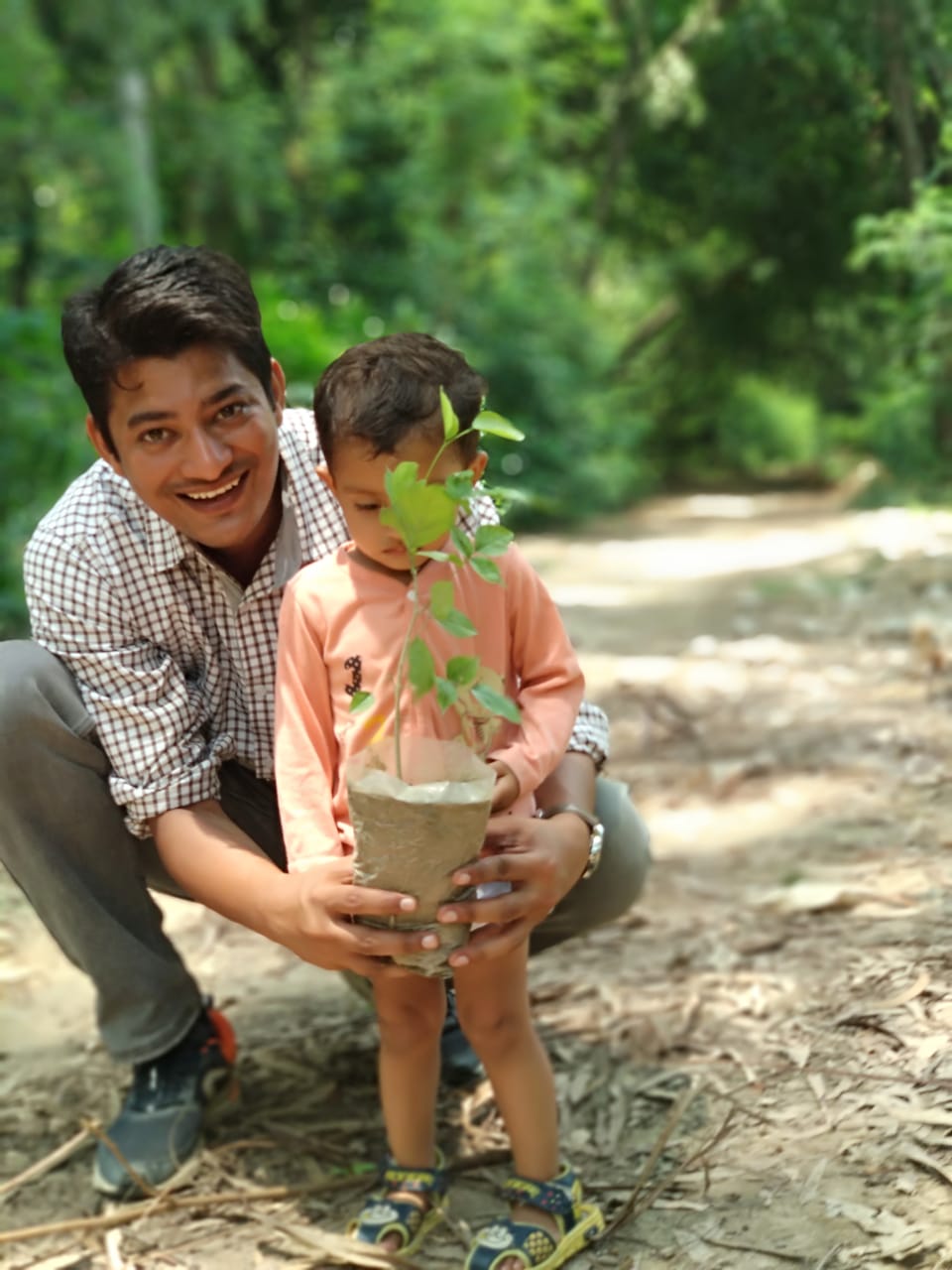
“My mother was a gardener and she inspired me to dirty my hands with soil. I love travelling and setting up gardens for people through workshops. I use natural growing methods like permaculture and ecosystemic designs. I also practice other integral gardening methods like mulching, composting, soil-regeneration, seed-saving and companion planting. I brew my bio-enzymes to spray on the crops,” Vipesh, presently posted at the Budhlada Horticulture Department tells The Better India.
Called ‘Biomimicry’, Vipesh’s gardening design mirrors a natural forest that has the ability to decompose, store water, produce clean air, provide access to sunlight and yield healthier food.
Here Are 5 Rules He Follows
1) Natural Mulching
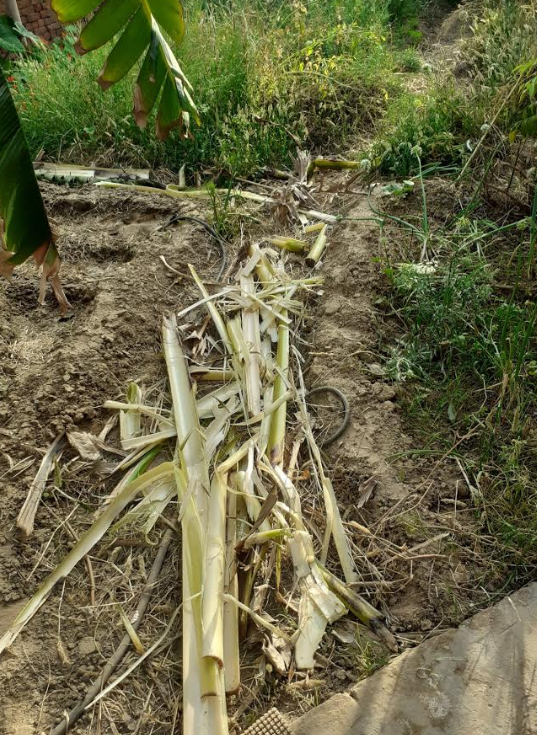
Vipesh uses farm waste like weeds, dry leaves, eggshells, sugarcane bagasse, straw, banana leaves and farm litter as mulching material. These materials when decomposed provides ample nutrition to plants.
Mulch is nothing but a protective layer above the soil that helps in retaining the moisture in the soil, prevents weed growth and regenerates soil through slow fertilisation. He also recommends planting edible legumes such as beans and fenugreek that also act as a bio-mulch. They fix nitrogen in the soil benefiting other plants also. Microgreens, fenugreek, spinach, nasturtium, coriander are some other options.
2) In-Situ Composting
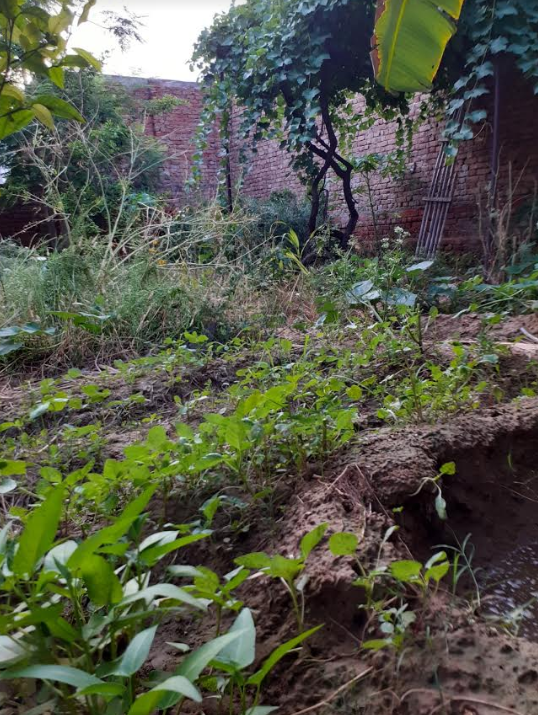
Vipesh swears by in-situ composting as it mimics nature and the green waste naturally shrinks and decomposes into the soil surface.
“In-situ composting is for those who don’t have a compost bin to make garden compost. All one has to do is dig a one-feet-deep trench in the garden and fill it with kitchen waste like fruit peels and vegetable waste. Cover the waste with over with a layer of dry leaves,” he explains.
The organic waste decomposes and provides nutrient-rich food to microbes and worms. This, in turn, improves soil management and soil regeneration.
3) Companion Planting
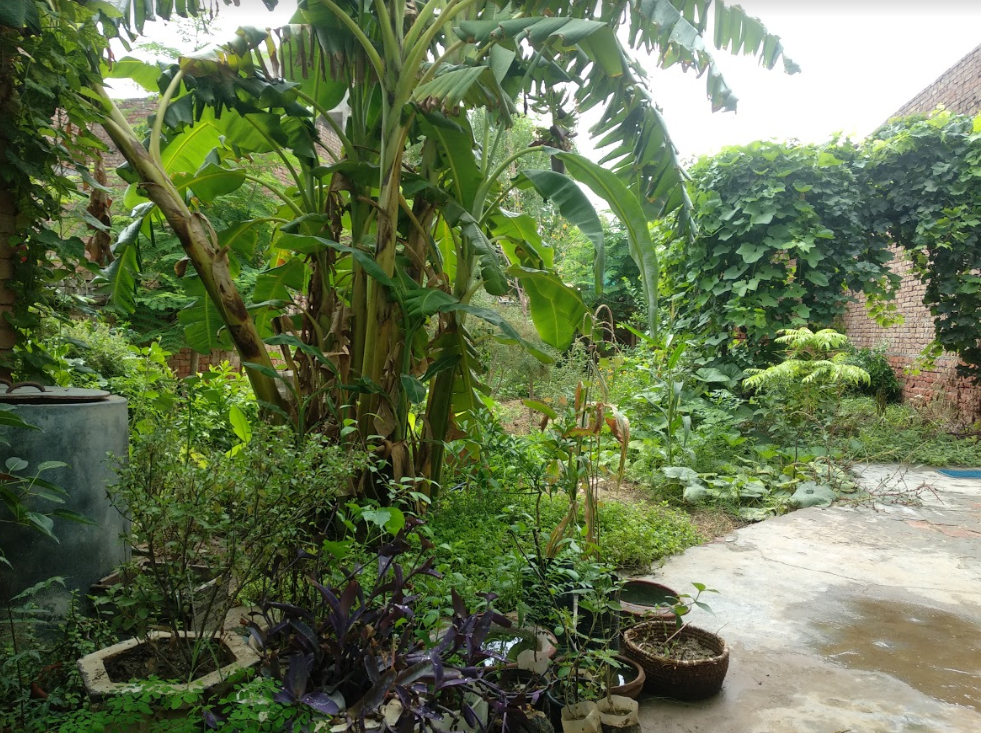
Companion planting is sowing different crops in close proximity to maximise the use of space and increase crop productivity. It also helps in pest control, promotes pollination and natural proliferation of beneficial insects.
“Companions help each other grow. For example, I grow banana, mint and turmeric as companion plants. The banana tree provides shade and turmeric keeps the pest away. Other combinations are maize, cowpeas and bottle gourd; and moringa, nasturtium, colocasia.”
4) Bio-Mimicked Raised Beds
In raised bed gardening, plants are grown in soil that is higher than the ground. For this, Vipesh has used a layer of gravel and small stones/pebbles. This helps in proper drainage and keeps roots from being damaged in case of over-irrigation during monsoons.
“Raised garden beds, which are ideal for small plots of veggies and flowers, also prevent soil compaction and act barriers to pests. They require fewer gardening inputs, irrigation and maintenance,” says Vipesh.
Click here to know the detailed process.
4) Seed Saving & Bio enzymes
Being a horticulture officer, Vipesh often gets an opportunity to visit farms across the state. He collects seeds while travelling from farmers or farms. He prefers opting for open-pollinated and self-seeded plants.
As these seeds are nutrient-rich and some even of rare varieties, Vipesh saves seeds and reproductive material from his garden left after every cycle. In the gardening jargon, this process is known as seed saving.
“Saving seeds of best-performing plants is vital as they have already adjusted in my garden’s ecosystem, soil, climate, and growing conditions. The saved seeds when repotted will perform better in the next cycle and give more yield,” he explains.
Vipesh also prepares bio enzymes from fruit and vegetable waste. “I ferment kitchen fruit peels for over 60-90 days and then add jaggery and water. Every month I prepare around 10 litres of BE which is sprayed in my garden every 15 days,” he says.
Fruits of labour
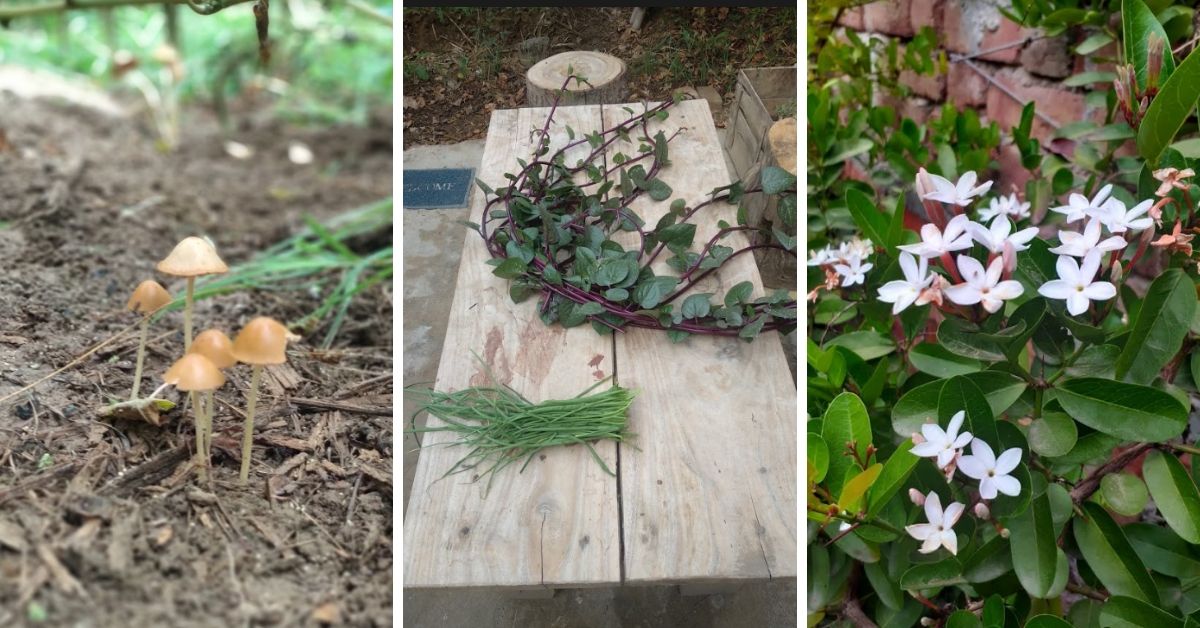
With the help of these natural practices, Vipesh’s food garden now flourishes with fruits like banana, lemon, kinnow, phalsa, guavas, grapes, papaya, cranberry, mulberry and so on.
Other vegetables include fenugreek, spinach, garden cress, mustard, rocket leaves, wild oxalis, coriander, rosella, wheatgrass. Herbs and medicinal plants include mint, holy basil, Thai basil, camphor basil, celery, fennel, chamomile, insulin plant, ashwagandha and so on.
Vipesh believes that gardening is an integral part of life that has helped him grow in more ways than one, “I feel one with nature and at peace every time I step into my garden. Gardening has taught to be patient and not give up until I achieve the end goal.”
All images are taken from Vipesh Garg
(Edited by Saiqua Sultan)
Like this story? Or have something to share?
Write to us: [email protected]
Connect with us on Facebook and Twitter.
This story made me
- 97
- 121
- 89
- 167
Tell Us More
We bring stories straight from the heart of India, to inspire millions and create a wave of impact. Our positive movement is growing bigger everyday, and we would love for you to join it.
Please contribute whatever you can, every little penny helps our team in bringing you more stories that support dreams and spread hope.






